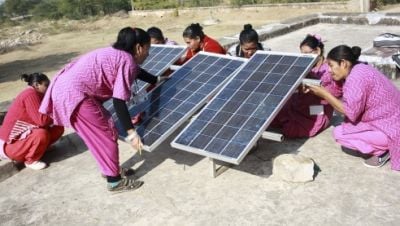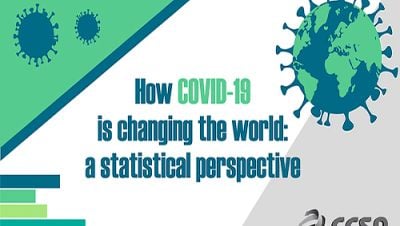This year’s International Day of Democracy calls for more inclusive institutions and civic participation to promote peace and stability. This focus is very much aligned with the 2016 Human Development Report ‘Human Development for Everyone,’ which calls for governments and multilateral organizations to encourage universal civil participation and support people’s contribution to public and political life.
Over the past decades, the ways in which people express their political opinion has changed. For example, voter turnout has been declining steadily since the 1980s. Globally, the average percentage of registered voters who cast a vote in legislative elections fell from 76 percent in the 1980s to 66 percent in 2011-2015. The 2013 Human Development Report ‘The Rise of the South,’ highlighted rising government dissatisfaction, distrust in traditional democratic processes and people’s call for more opportunities to voice their concerns and influence policy.
Information and communication technologies have opened the gate for new means of participation. Digital identification systems, for instance, have the potential to improve electoral processes and restore public trust. In the 2015 general elections, Nigeria piloted a new voter authentication system using fingerprint-encoded cards to avoid duplicate votes. In Brazil, an online municipal budget voting initiative increased voter turnout by eight percent. Voting remains the main way to influence governments, but the Internet has also provided other opportunities that are particularly popular among young people.
Governments are developing innovative tools to encourage their citizens to interact with them online.
Every government around the world now has some form of presence on the Internet, with an increasing number offering e-participation mechanisms. Slovenia offers a dedicated website to ask questions, share proposals and suggestions with various ministries, while Estonia launched a web portal where citizens can engage in the drafting of laws.
Cyberactivism, or political engagement through the Internet, also includes signing online petitions or sharing opinions and information through blogs and social media. Websites like Avaaz empowers people from all over the world to take action on pressing global, regional and national issues, drawing the attention of policy-makers to issues that matter to them the most. Governments are also beginning to adopt online petition mechanisms. Since 2010, the United Kingdom allows citizens to petition Parliament and those that receive 100,000 online signatures are considered for debate. In 2007, the European Union adopted the European Citizen’s Initiative, which allows groups of one million citizens from at least one quarter of the member states to directly propose legislation to the European Commission.
The Internet has facilitated information sharing, including through blogging and social media, beyond any other means of communication. In the Republic of Korea, the online newspaper OhmyNews relies almost exclusively on contents shared from “citizen reporters” for its publication. In Tunisia, Egypt and Syria, the broadcasting of police brutality during pro-democracy demonstrations on Facebook was instrumental in the 2011 Arab Spring movement. Over one third of young people in the Arab States now get daily news on Facebook and 31 percent on the Internet, according to the Arab Youth Survey 2017.
From a human development perspective, one of the most significant challenges for online civil participation is unequal access to the Internet. People living in developing countries and in rural areas still have limited connection. According to the International Telecommunications Union, only 42.9 percent of all households in developing countries are connected in 2017, and only 14.7 in the least developed countries, compared to 84.4 percent in the developed world. Women, older people and people with lower income worldwide also generally use the Internet less. Without universal access, digital participation tools may increase inequalities rather than reduce them, over-representing existing elites in online democratic processes.
Another challenge is the spread of false information. The Internet makes it easier than ever for inaccurate information to spread, especially via social media. This poses a danger to healthy democracies. In the past year however, non-profit organizations, news agencies, Facebook, Google and others have launched dedicated strategies to track and erase these fake news stories from the Internet. It remains to be seen how successful they will be.
The Internet is a promising avenue to expand and rejuvenate civil participation, with the potential of reaching people who have been left behind in democratic processes. The spread of smartphones and broadband connections should support this trend in the coming years, creating new opportunities for people to experience and promote democracy in the digital age. But this potential will only be reached if universal Internet access, freedom of expression and information are ensured, and if digital participation mechanisms are institutionalized by governments at the local, national and international levels.
The HDialogue blog is a platform for debate and discussion. Posts reflect the views of respective authors in their individual capacities and not the views of UNDP/HDRO.
HDRO encourages reflections on the HDialogue contributions. The office posts comments that support a constructive dialogue on policy options for advancing human development and are formulated respectful of other, potentially differing views. The office reserves the right to contain contributions that appear divisive.
Photo: © UNDP Bangladesh


